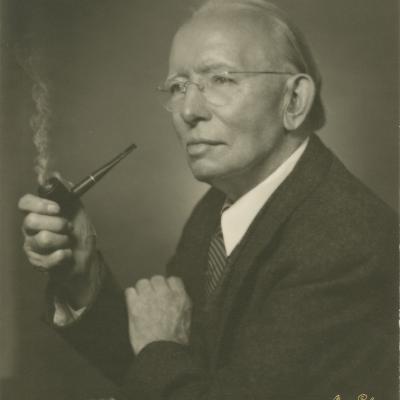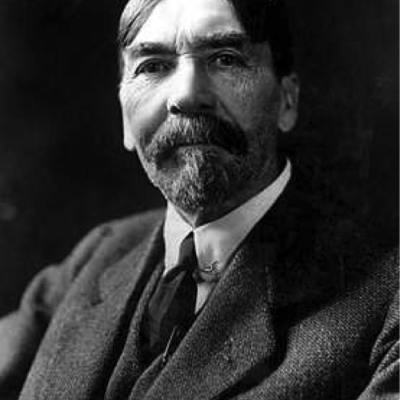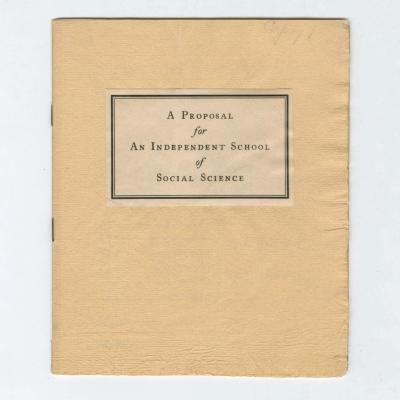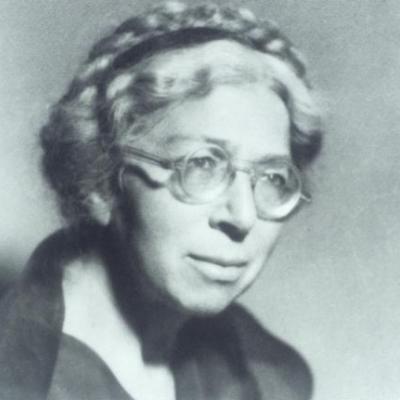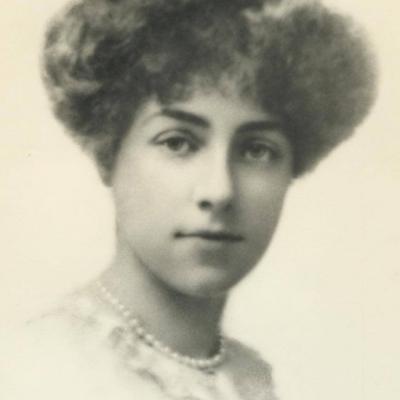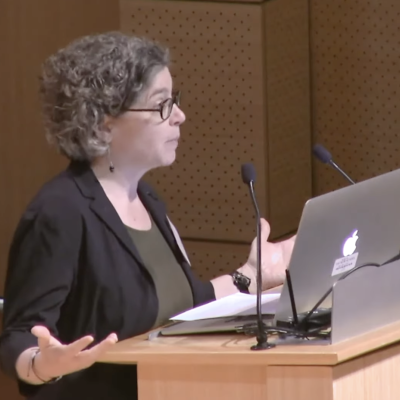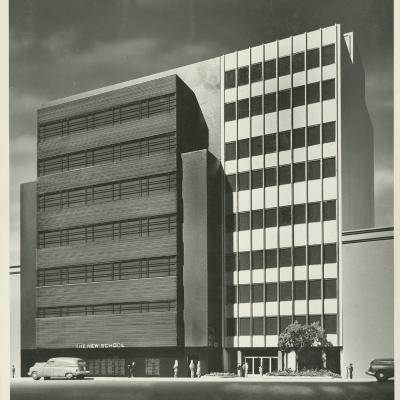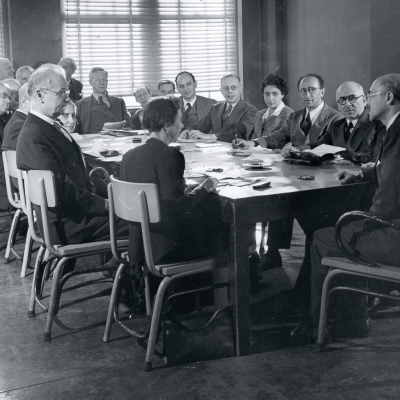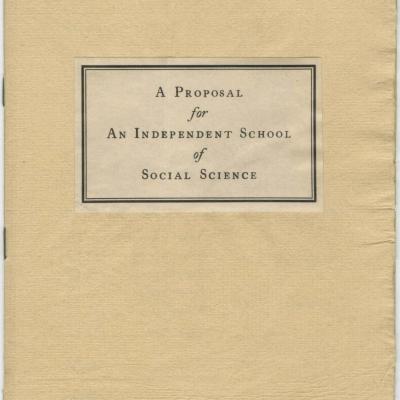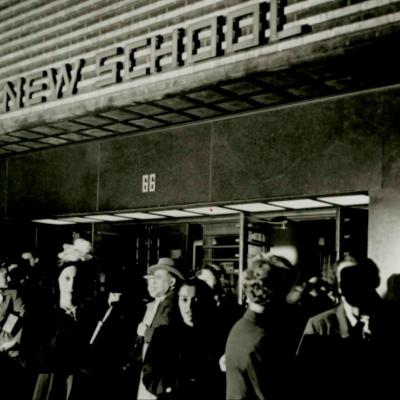Category: Founding
A Statement
It has been insinuated by certain authorities of Columbia University that I resigned in a fit of unjustified petulance, and I, theretofore, beg to submit the following statement...
The Refuge of Affections: Family and American Reform Politics, 1900–1920 (Dorothy Whitney and Willard Straight)
Like many of their contemporaries, both Dorothy Whitney and Willard Straight had, when younger, tried to change the world they knew, and they both succeeded within limits.
The Advent of Direct Government
The Federal Constitution is in many other respects besides its amending clause a most unsatisfactory instrument for a courageous and thoroughgoing democracy.
Art as Experience
Under conditions of resistance and conflict, aspects and elements of the self and the world that are implicated in this interaction qualify experience with emotions and ideas so that conscious intent emerges. Oftentimes, however, the experience had is inchoate.
Alvin Johnson, Deliver Us from Dogma
If someone told you that students from the New School are very open-minded, that would not be surprising.
Thorstein Veblen
Thorstein Veblen’s educational philosophy and book The Higher Learning in America deeply influenced the unique character of the New School for Social Research in the first discussions about creating an adult education institution in 1918.
The Mission of the School: Then and Now
Some principles on which the school was founded upon were academic freedom and the need to reinvigorate democracy. These core principles remain the same.
Clara Mayer
Clara Woolie Mayer (1895-1988) is possibly the most important forgotten figure in New School administrative history.
Dorothy Payne Whitney Straight Elmhirst
Dorothy Payne Whitney was born in 1887, the youngest child of Flora Payne and William C. Whitney. By the age of 17, her mother, stepmother, and her father had all died, leaving Dorothy with an enormous inheritance and a sense of urgency to make her life have meaning.
A New School Minute (or Two)
On Alumni Day on May 11, 2013, the Alumni Office asked twenty faculty and staff to give a 60-second lecture. Tasked with the topic of “New School History,” it was quite a challenge!
What is New is Old: A Talk on the History of The New School
Julia Foulkes gave a talk for the Greenwich Village Society for Historic Preservation on July 8, 2015, on the history of the New School. Video here.
University in Exile
Alvin Johnson was the president of the New York New School for Social Research when, in 1933, he responded with alacrity to the growing crisis in Europe. The previous year, Alvin Johnson had traveled to Europe and had witnessed a potential need for a haven for academics and scholars.
The Founding, 1919
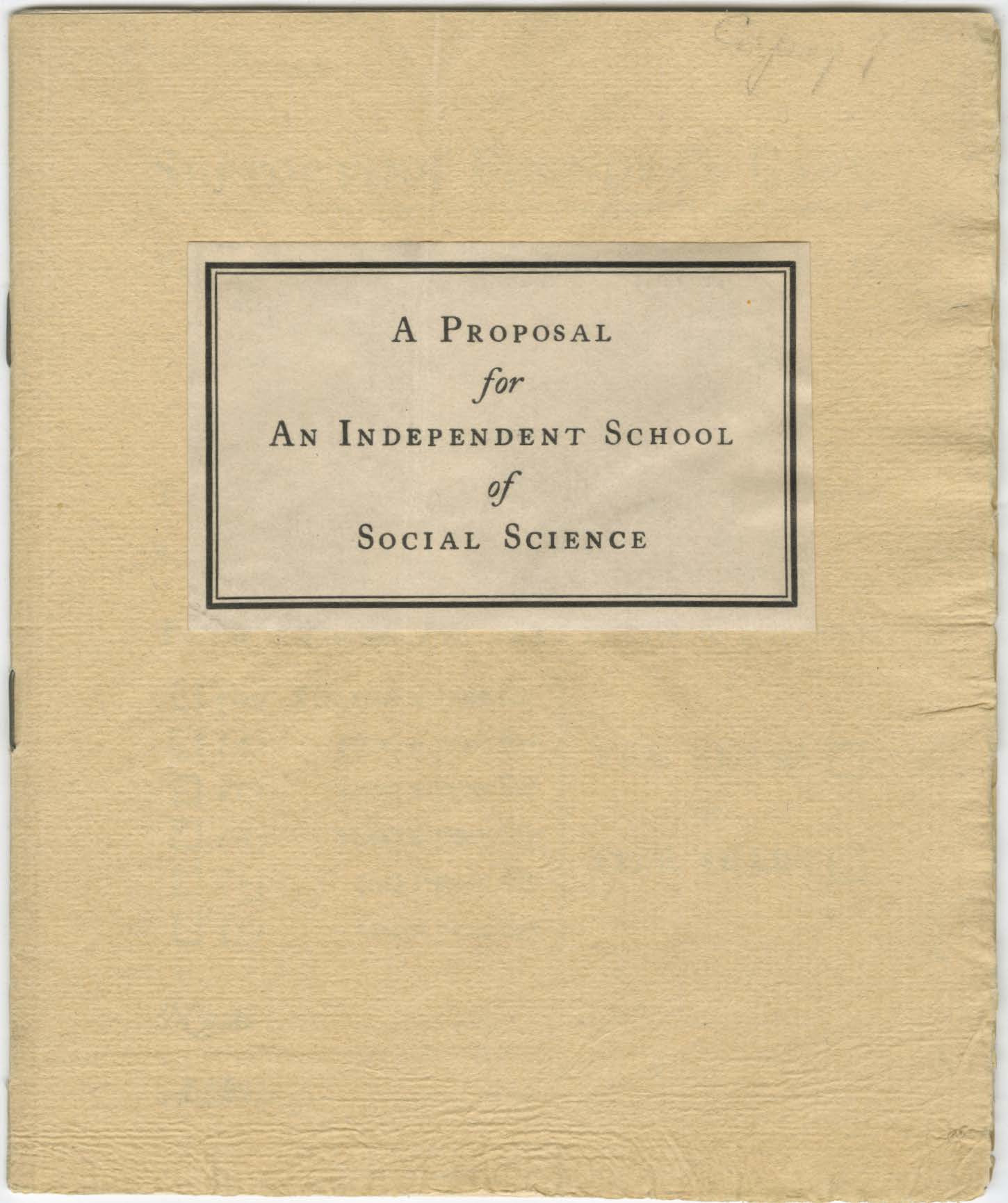
History of the Bachelors Program
On May 19, 1944, the Board of Regents granted the New School the ability to give bachelor’s degrees and the school aimed to attract adult students starting or finishing their degrees. The school was poised to take advantage of the recently passed G.I.
The Lady of the Salon
Towards the end of the reign of Henry the Fourth of France, Marquise de Rambouillet built for herself a new in the Rue St. Thomas du-Lovre, and placed her staircase in a corner of the building instead of in the middle where all the world had supposed a staircase must be.
“Satisfaction of Social Categories” and “Women”
In any study of the relations between personality and social classification the queries arise why the social categories are alike so compulsive to the conservative-minded and so precious, why they are given such unfailing loyalty, why such unquestioning devotion?
Reflections on the New School’s Founding Moments, 1919 and 1933
From its very beginning, the New School has wrestled with the consequences of unfreedom, fear, and insecurity, working to advance John Milton’s ringing affirmation of 1643: “Give me liberty to know, to utter, and to argue freely according to conscience, above all liberties.” It has tr
“On the Purpose of this Volume” and “Three Disappointed Methods of Reform”
If some magical transformation could be produced in men’s ways of looking at themselves and their fellows, no inconsiderable part of the evils which now afflict society would vanish away or remedy themselves automatically.
The Higher Learning in America
In any civilization there will be found something in the way of esoteric knowledge. This body of knowledge will vary characteristically from one culture to another, differing both in content and in respect of the canons of truth and reality relied on by its adepts.
A Proposal for an Independent School of Social Science for Men and Women
The political and social problems forced upon the country by the economic development of the past twenty-five years call for a new type of leadership in every field of American life.
The Influence of Darwin on Philosophy
An elaborate preface to a philosophic work usually impresses one as a last desperate effort on the part of its author to convey what he feels he has not quite managed to say in the body of his book.
My Pedagogic Creed
I believe that all education proceeds by the participation of the individual in the social consciousness of the race.
A School of Social Research
After the debacle of the Franco-Prussian war, Frenchmen began to consider seriously and searchingly how far their country’s defeat by Germany could be attributed to past neglect in organizing education.
Commencement Speech to Columbia University
President Nicholas Murray Butler of Columbia University, in an address at a luncheon of alumni held in the university gymnasium at the close of the commencement exercises yesterday, denounced members of the university who resist the Government in time of war.
Columbia Ousts Two Professors Foes of War Plans
Two members of Columbia University Faculty – Professor James McKeen Cartell of the Department of Psychology and Assistant Professor Henry Wadsworth Longfellow Dana of the Department of English and Comparative Literature – were ousted from the university at a meeting of the Trustees ye
“Education as Growth” and “Experience and Thinking”
The following pages embody an endeavor to detect and state the ideas implied in a democratic society and to apply these ideas to the problems of the enterprise of education.
Alvin Johnson at Eighty
A whole literature of citations, eulogies, testimonials, of addresses, editorials and reviews has grown around the work and record of Alvin Johnson. How can one add anything without being repetitious?
An Economic Interpretation of the Constitution of the United States
The following pages are frankly fragmentary. They are designed to suggest new lines of historical research rather than to treat the subject in an exhaustive fashion. This apology is not intended as an anticipation of the criticism of reviewers, but as a confession of fact.
